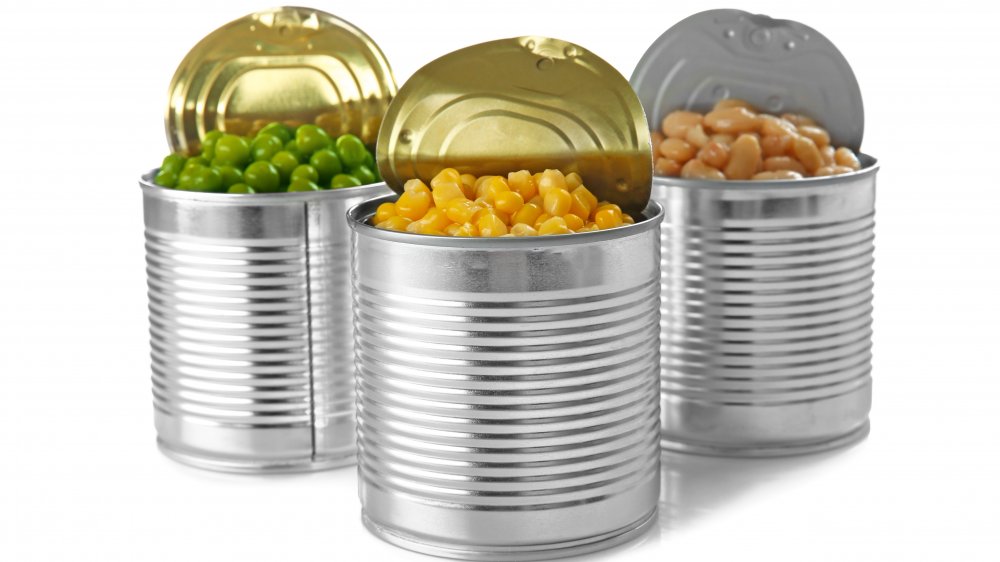What You Should Know About BPA In Canned Food
Many of us have heard about the possible harmful effects of BPA, but what is it exactly? According to Healthline, BPA is a chemical that is used to create strong and durable plastics. Items that contain BPA include plastic water bottles, feminine hygiene products, and the linings of canned foods. Despite concerns about what this chemical can do to our health, Insider reports that 10 percent of canned goods still contain BPA. So what are the health impacts of BPA? Experts have conflicting ideas about whether it's harmful or not.
The main worry stems from the chemical's ability to mimic the function of estrogen. Because of this feature, there are concerns that BPA can impact cell repair, human reproduction, and growth, among other vital processes. A Harvard study exposed 352 eggs from 121 patients at a fertility clinic to the chemical and found negative results, according to WebMD. "Exposure of eggs to BPA decreased the percentage of eggs that matured and increased the percentage of eggs that degenerated," said lead researcher Catherine Racowsky, director of the assisted reproductive technologies laboratory at Brigham and Women's Hospital in Boston. Apparently, this also impacts men's fertility. According to one study, higher BPA levels in men were associated with a three to four times greater likelihood of having a low sperm count.
There are conflicting reports from experts on the harmful impacts of BPA
In light of the troubling evidence, the EU, Canada, and Malaysia have imposed limits on the use of BPA, specifically when it comes to products for infants and children. However, some experts say there isn't a cause for concern. In 2014, the FDA published findings that indicated that a BPA daily exposure limit of 23 mcg per pound of body weight (which was set in the 1980s) was likely safe for people (via Healthline).
Even though expert opinions have been conflicting, if you're feeling unsure about what to do, there are steps you can take. Registered dietician Maggie Michalczyk told Well and Good that it's possible to just avoid the chemical altogether. "BPA has potential health risks which is why you want to look for cans that say 'BPA free,'" she explained. "Many companies have taken initiatives to remove BPA, however, I would still check the can."

